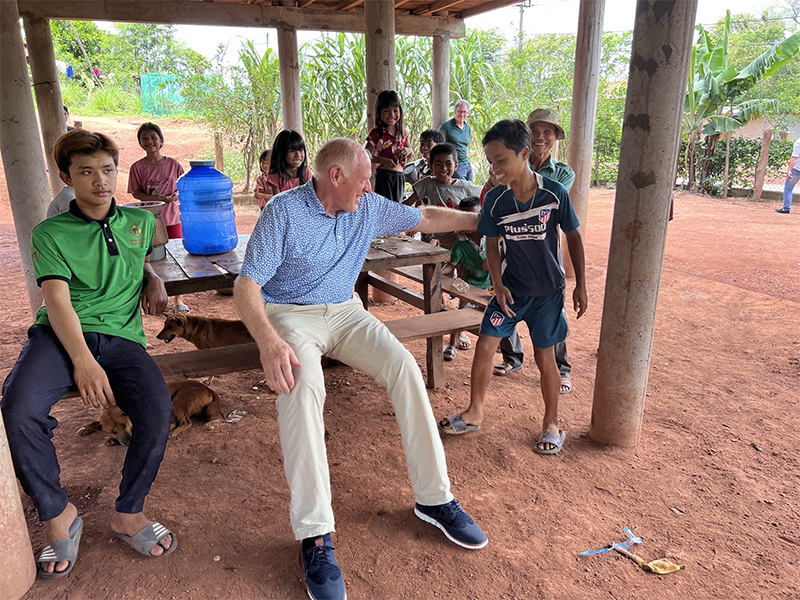
Today is World Malaria Day, an occasion established by the World Health Organization (WHO) Member States to stress the need of sustained political commitment and financial investments to prevent and control the disease.
The WHO estimated almost a quarter-billion malaria cases and more than 600,000 malaria-related deaths in 85 countries in 2022. Ninety-four percent of those cases and 95% of the deaths occurred in the WHO African Region. Eighty percent of deaths in the region were in children under age five.
Learn more about the impacts of global malaria.
Additionally, experts have been concerned for years about the rise of drug-resistant malaria variants in Southeast Asia and the prospect that one or more of these strains might travel to Africa. A similar event occurred in the 1980s with the emergence of drug resistance to the then-standard treatment of chloroquine, resulting in millions of deaths.
In response to the rise of drug-resistant variants, Philip Low is working to validate a drug therapy that has been previously shown to successfully treat malaria. Low is Purdue University’s Presidential Scholar for Drug Discovery and the Ralph C. Corley Distinguished Professor of Chemistry in the College of Science. He also is on the faculty directory of the Purdue Institute for Drug Discovery and the Purdue Institute for Cancer Research.
In 2021, a Phase 2 clinical trial organized by Low and his colleagues showed that Imatinib, a cancer drug, was almost 100% effective in defeating malaria in only three days. By adding Imatinib to customary malaria therapy, all malaria parasites were cleared from 90% of patients within 48 hours and from 100% of patients within three days. Trial results were published in the Journal of Experimental Medicine.
In 2023, Open Philanthropy awarded $1.38 million to Low to further validate the drug therapy. Part of the award will be used to conduct a larger, phase 3 clinical trial in Southeast Asia to validate previous results. The other part will be used in a phase 2 clinical trial in Africa to determine if the three-day therapy can be reduced to two days, and then one day.
“We’ll turn over the technology to any company committed to distributing it to countries in malaria-infested areas,” Low said. “I’m not interested in making a penny off of this. I just think it’s important for humanity to have it.”
Low and his team have been working with regulatory agencies to obtain approval to run the human clinical trials.
To learn more about innovation at Purdue, visit the Purdue Innovates website.
MEDIA CONTACT
Email: Steve Martin // sgmartin@prf.org
The Convergence Center for Innovation and Collaboration 101 Foundry Dr, West Lafayette, IN 47906, 765-588-3470
Trouble with this page? Please contact Purdue Research Foundation by Phone, 765-588-3470, or FAX, 765-463-3501.